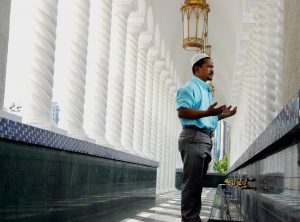On July 21, 2018, Bruneians woke up to shocking news: the Royal Brunei Police Force (RBPF) had arrested two judges in connection with a criminal breach of trust and money laundering. Hj Nabil Daraina, a senior magistrate at the Bandar Seri Begawan Magistrates Court, and his wife Ramzidah, a senior registrar at the High Court, were accused of misappropriating 15.75 million Bruneian dollars (US$11.3 million) from bankruptcy cases to buy luxury cars and other high-value assets.
The trial of the accused was conducted at Brunei’s high court, which on January 15, 2020, convicted the couple and sentenced them to long jail sentences. In this case, the punishment should have been very severe as the convicts not only stole public money but were judicial officers, which requires them to be of impeccable integrity and honesty.
Still, the punishment was not as harsh as it could have been. Theft of any kind is forbidden in Islam and if the couple had been tried under the Sharia Penal Code and given the hudud punishment, then their right hands, from the wrist down, could have been amputated.
The Sharia Penal Code Order, including hudud punishments such as amputation of limbs for theft and stoning to death for adultery, was fully implemented on April 3, 2019 in Brunei. In the year since, not a single criminal case has been dealt with according to the new Sharia law.
When Brunei announced the implementation of the controversial law, it evoked loud protests from all over the world, with Hollywood celebrities like George Clooney calling for a boycott of hotels owned by Brunei’s ruler Sultan Hassanal Bolkiah. Oxford University even withdrew the honorary degree it had awarded to the sultan.
Brunei explained that as a former British protectorate it has been practicing a dual legal system – one based on Sharia and the other on British common law – and both systems will continue to run in parallel to maintain peace and order. The sultan himself announced that Brunei will continue its de facto moratorium on the death penalty and clarified the misconceptions about the Sharia Penal Code Order by saying that the new law will “respect the privacy of individuals.”
The West’s biggest criticism against the Sharia law was that it is very cruel toward the LGBT community and that the rights of minorities – Christians and ethnic Chinese, most notably – professing faiths other than Islam will be severely curtailed. Fake new stories, like a ban on Christmas celebrations and the exodus of the LGBT community from Brunei, started appearing in the media.
The Diplomat talked to members of these minority groups to find out whether, one year on, the implementation of Sharia law has affected their lives.































